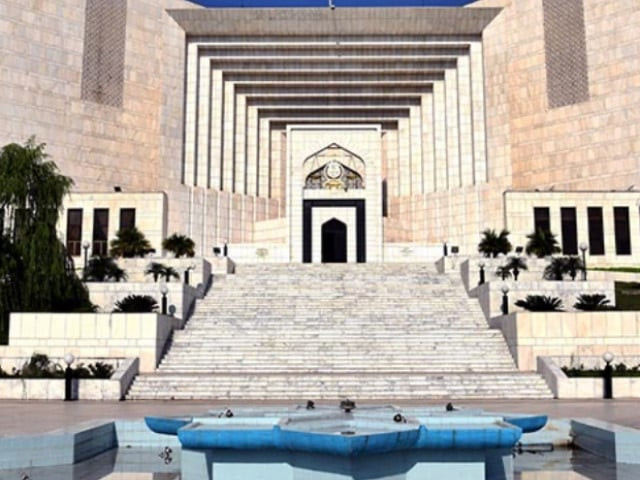Insult, abuse not free speech: SC
CJP stated apex court has to ensure to all that constitutionally prescribed fundamental rights are not denied to them.

The Supreme Court has held that the right to freedom of expression does not include the right to abuse or insult others.
The apex court noted that Pakistan was amongst the first countries to have signed the Universal Declaration of Human Rights, adding that Its Article 19 — which states that ‘everyone has the right to freedom of opinion and expression’ — also does not permit abusing or insulting anyone.
Chief Justice of Pakistan (CJP) Qazi Faez Isa declared this in a nine-page order regarding the issuance of contempt notices to 34 TV channels in Senator Faisal Vawda and Mustafa Kamal’s contempt case.
The order also highlighted that the International Covenant on Civil and Political Rights 1966, while guaranteeing the right to freedom of expression, allows for lawful restrictions, including those made for respecting the rights or reputations of others.
The CJP stated that the apex court has to ensure to all that the constitutionally prescribed fundamental rights are not denied to them.
However, he emphasised, that the right to freedom of speech and expression and the freedom of the press in Article 19 does not take precedence over the inviolability of the dignity of persons and of the privacy of the home in Article 14, which incidentally is numerically a prior fundamental right. “The exhilarating elixir of free speech and media freedom does not permit slandering anyone, including judges and courts,” CJP Isa said.
The ruling further noted that disagreement and discord have become all too pervasive and it has permeated into people’s behaviours, ideas and beliefs with the quick, easy and widespread dissemination of falsehoods and slander.
“The legal tool which is used for recompensing the wronged and imposing heavy financial penalties remains under-developed and it is effectively stymied in Pakistan. Resultantly defamation and spreading lies is not visited upon with consequences which may curtail them,” the order read.
To the question of whether ‘we will be brought to account for what we say’, the ruling pointed out that the response of Prophet Muhammad (peace and blessings be upon him) was rhetorical: “Are people thrown onto their faces in Hell for anything other than the harvest of their tongues?”
“On another occasion, he [Prophet Muhammad peace be upon him] said that no one shall enter paradise whose neighbour is not safe from the harm of his tongue.”
Citing Imam Ghazali, the ruling stated: “To believe in defamation is worse than defamation, as defamation shows the way but belief in defamation gives permission. He who shows the path to a thing is not equal to one who admits it and gives permission. So, beware of slanderers and defamers.”
The order stated that “The broadcaster of slander, therefore, cannot take refuge in saying that he is not the originator of the slander; the broadcaster must verify the truth or falsehood of the matter.”


1724319076-0/Untitled-design-(5)1724319076-0-208x130.webp)
















COMMENTS
Comments are moderated and generally will be posted if they are on-topic and not abusive.
For more information, please see our Comments FAQ